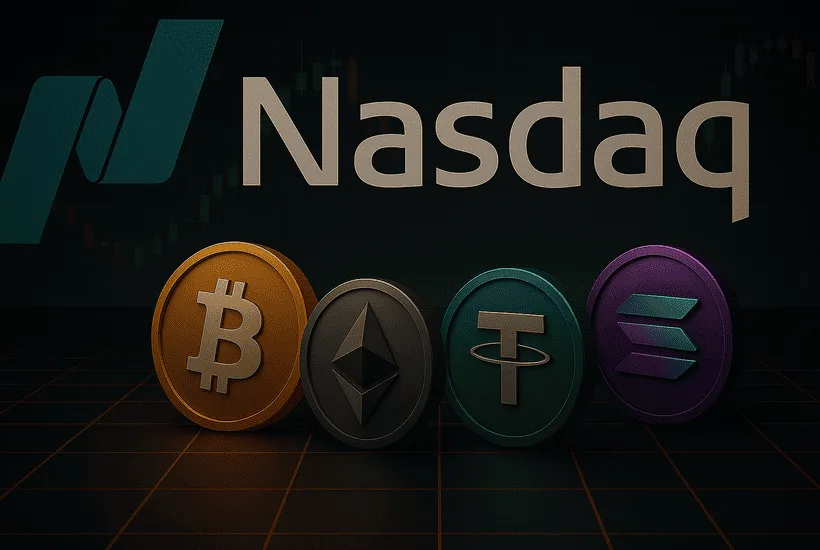U.S.-based Nasdaq stock exchange is looking to enable the trading of tokenized securities through its platform. In conversation with CoinHeadlines, Ondo Finance CSO Ian De Bode said Nasdaq’s attempt to dive deeper into the tokenized assets ecosystem can be taken as the clearest sign yet, that tokenized assets are ready for prime time.
This week, Nasdaq filed a proposal with the U.S. SEC — seeking permission to refresh its policies. The stock exchange wishes to allow the trading of listed stocks and exchange-traded products through its platform in the form of either traditional digital assets or tokenized ones.
If approved, it would mark the first time that securities like corporate capital stocks or mutual funds could be traded as tokenized assets on a major U.S. stock exchange
As per Ondo Finance’s Chief Strategy Officer (CSO), if Nasdaq’s proposal is cleared by the SEC, tokenized securities could be available for trade on the platform by as early as 2026.
“Blockchain technology is coming to America’s equity market. The same rails that gave people global access to the US dollar will now give global access to U.S. capital markets,” he quipped, commenting on the development. “This reinforces the vision that blockchain technology can enhance and modernize traditional markets while preserving what makes them trusted.”
De Bode also spoke on Nasdaq’s TradeTalks show about the possibilities for tokenized assets if traditional stock exchanges started offering related services.
Tokenized securities can be explained as the blockchain representations of traditional assets like stocks and bonds. Tokenizing these assets paves the way to enable “fractional ownerships” for them — while also facilitating faster trading, better liquidity, and blockchain-based tamperproof record keeping.
Market players have reacted to Nasdaq’s proposal with optimism predicting that if approved, it could bring blockchain under the spotlight for stock settlements.
Sumit Gupta, the founder of Indian exchange CoinDCX also reacted to Nasdaq’s SEC filing saying, “When TradFi meets Web3, it will unlock liquidity and access like never before!”
The demand for services around tokenized assets seems to have risen over the past one year as more companies from the crypto sphere have mulled over plans to introduce them.
Last month, for instance, Coinbase reached out to the SEC to get approval for offering offer tokenized U.S. equities domestically. The crypto exchange, touted among the largest in the world, is not awaiting a “no-action letter” or exemptive relief from the SEC to make the product legal in the U.S.
As per Nasdaq President Tal Cohen, the integration of blockchain into traditional markets has the capability to reduce friction, accelerate settlement times, automate processes, and improve efficiencies in capital and collateral management.



